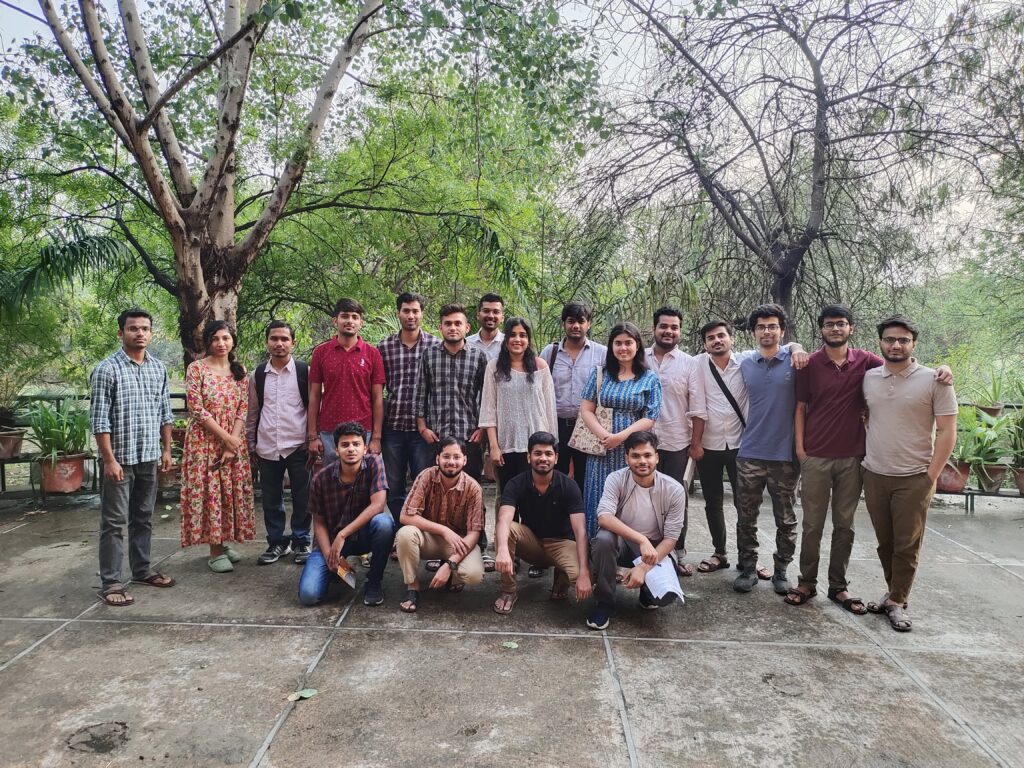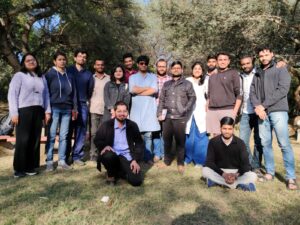
This blog provides discussion highlights for Sunday IR Cafe #51. Conducted on 07th May 2023, the discussion covered Towards control and effectiveness: The Ministry of Defence and civil-military relations in India.
Core Arguments:
- India’s civil-military relations have been characterized by a high degree of civilian control over the defense policy, as reflected in the organizational structure of the Ministry of Defense. The senior civilian officials manning the MoD have been the generalist bureaucrats, which has hampered the synergy between the military and the civilian authority. The military has also been given operational autonomy, which has its own downsides. This dual feature of the lack of civilian expertise and the military’s operational autonomy has a detrimental impact on military effectiveness.
- A slew of defense reform committees has suggested developing civilian expertise and involving military officials in the decision-making. In 2020, the Indian government reorganized the MoD to create a new Department of Military Affairs led by the Chief of Defense Staff, a move towards greater involvement of military officials in the decision-making process.
- However, the decision for military officials to head their respective service wings within the Ministry at the Joint Secretary level reinforces the division of labor between the civilian and military officials. The problem of lack of civilian expertise has been left unaddressed under these new reforms. A change in the military training module and their mindset to enable the officials to surpass parochial interests during government service is also required.
Discussion:
- The newly created Department of Military Affairs within the Ministry of Defense, which inducts military officials at different levels within the MoD, might actually exacerbate the division between the civilian bureaucracy and military officials. The civilians within the Ministry still come from the generalist civil services background, and their lack of expertise makes them ill-equipped to have an equal dialogue with their military counterparts. It is, thus, a reform half-baked at best, and sans the efforts at fostering the civilian specialization, might not deliver optimally.
- The defense reforms involving the jointness of various services would require civilian oversight and some degree of enforcement in order to see it to fruition. The turf battle among the services, the staple of bureaucratic structures, is a hampering factor that can possibly be resolved by civilian control. In the current context, the Air Force is vocally resistant to the integration effort because of the possibility of its resources being stretched.
- The lack of civilian involvement in military training is a pertinent reform issue. However, beyond pointing to the problem, we also need to think creatively in terms of changes that would entail by inducting civilian faculties. One possible shift brought by the induction of civilian trainers could be an infusion of the strategic way of thinking that defines national power in comprehensive terms- economic and military sinews, diplomatic leeway, and influence in international institutions- and also encourages military planners to think from theoretical frameworks.
- On a related note, the military officialdom’s reluctance to shift its worldview, a trait possibly attributable to the logic of path dependency/ deep-seated strategic culture/ status quo turf protection, also needs to be addressed. For instance, anecdotal conversations with retired military officials reveal their deep-seated preference for historical ties with Russia, which sits at odds with the changing geopolitical situation that India finds itself in. If taken as a driver of India’s foreign policy, such sclerosis in terms of continued affinity for Russia might have adverse implications for India’s weapons procurement policy, for instance. Generally speaking, bureaucratic machinery tends to be resistant to change which might create sub-optimal outcomes and thus should be a matter of concern.
- When it comes to developing civilian expertise in defense matters, one proposal would be to create a separate All India Service for the Defense Ministry posts, akin to the Indian Railway Traffic Services. While the recruitment for the services could be handled by the Union Public Service Commission, the pattern of the selection process and consequent training modules can be designed to ensure the fostering of defense sector specialization among the young aspirants and recruited officials. Alternatively, in the short run, a selected group of central bureaucratic officials can also be provided specialized training annually in batches in order to create the much-needed pool of civilian experts. However, the specific contours of such specialized training need to be sketched out further.
- Given the half-baked nature of reforms involving the creation of the Department of Military Affairs, which only exacerbates the military’s autonomy, it makes sense to go a step further in integrating military officials into the Department of Defense as well, which deals with the issue of defense policy. This dialogue at the planning/ideational level between civilians and military officials should be seen as the necessary first step in harnessing the combined expertise in service of military effectiveness.
- Further, the Rashtriya Raksha University needs to be reimagined as a platform for civilian officials and young researchers to get operational military expertise as well as for military officials to get a better hold of strategic studies and IR theory discipline. Anecdotal evidence, however, shows that the RRU has a long way to go in achieving such a vision.
- The problem of weapons interoperability, reflected in the tragic incident of the friendly shooting of own helicopter in the wake of the Balakot attack, also merits attention. As India seeks to diversify its weapon procurement away from the historical dependence on Russia amidst increased Russian entente with China, the need for tackling incompatibility among different weapons systems would be a serious concern.
- We can see the detrimental impact of civilian control over national security policy in the case of India’s nuclear weapons program. It is true that India’s nuclear weapons program was largely a handmaiden of the Department of Atomic Energy, and the armed forces, for the most part, were neither keen on nor involved in the turn towards developing the bomb. However, it can’t be denied that secrecy and the non-involvement of the military possibly led to delayed weapon operationalization. The implication of the argument lies in thinking seriously about a dialogue between the civilians and military as well as shedding the postcolonial anxiety about militarism’s threats to the supposedly precarious democratic rule in India.
(Discussion Transcript and Editing by Sanjeet Kashyap)

